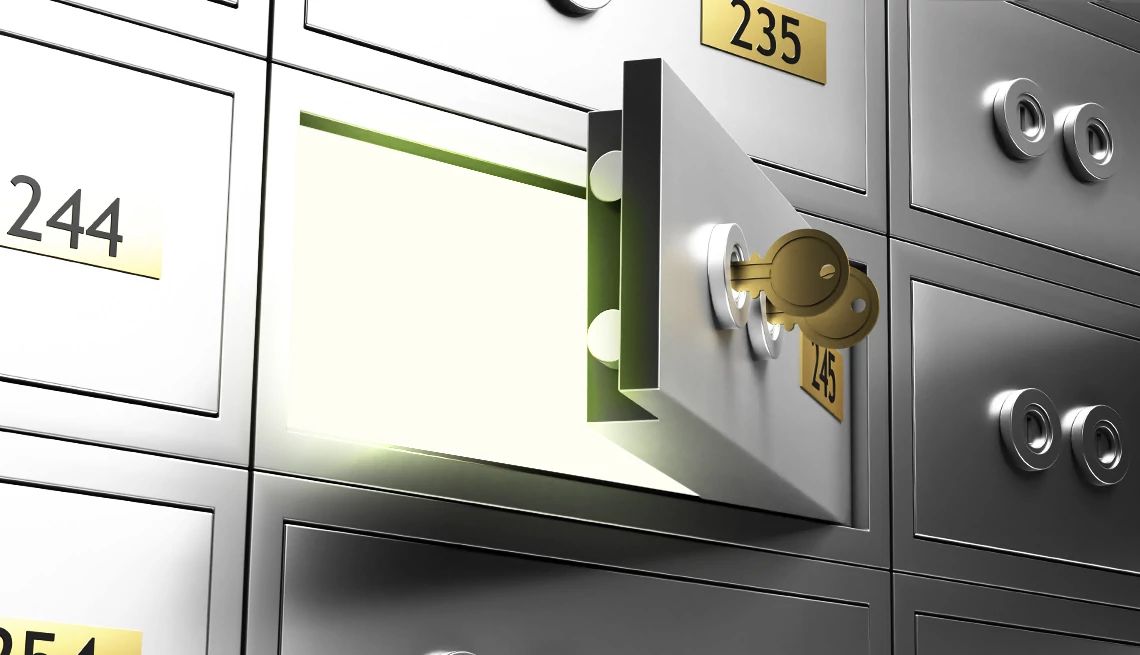AARP Hearing Center


Michele Treacy, 60, and her husband Patrick have kept a safe deposit box at their local Bank of America branch for 20 years. “We store all sorts of vital documents – birth certificates, wedding license, mortgage docs, car titles, will and living trust docs,” Michele says. They’ve always had peace of mind knowing their important paperwork was safely stored and accessible.
But during the pandemic they each lost parents, Michele’s father in 2020 and Patrick’s mother in 2021, and had a hard time accessing their parents’ wills in their safe deposit box. “Both times I had to call [the bank] to request to have someone meet me at the closed branch so I could get access to the necessary documents,” Michele recalls. “It was time consuming and a hassle during a difficult time.”
Then, when their branch in Lincoln Park, New Jersey closed and failed to reopen post-pandemic, their box was relocated to a branch 10 miles from their home, which Michele says has been inconvenient. The couple also noticed a steady rise in rental fees throughout the years, although being “platinum customers” they have been offered discounts and pay $139 annually for a small box.
Because of the higher fees, the duo has decided to cancel their box. “We are going with a secure fire-proof and flood-proof home safe from now on,” Michele says.
The Treacys aren’t alone in discovering surprising aspects of safe deposit boxes. And despite perceptions that they’re a dying breed, there are still over 20 million safe deposit boxes in the U.S., estimates Dave McGuinn, president of Safe Deposit Specialists, a financial consulting firm based in Houston, Texas.
Whether you currently rent one or are considering getting one, here are 10 things to know about safe deposit boxes.
1. The contents are not insured
The Federal Deposit Insurance Corporation (FDIC) defines a safe deposit box as a “storage space provided by the bank.” Therefore, any contents inside are not insured by the government agency if damaged or stolen. And unfortunately, financial institutions don’t insure the contents either.
“The contents are not protected by FDIC insurance, so if the bank is involved in a natural disaster or terrorism attack, you may lose your valuable contents with no way to recover their value,” says Jaclyn Roberson, a senior partner at Roberson Duran Law in San Antonio, Texas.
The only way to insure the contents is to take out a separate insurance policy. This can typically be set up as a rider to your renter’s or homeowner’s insurance. The premium is calculated based on the appraised or estimated value of each item. “I've also heard that some insurance companies will discount and lower the premium because the items are secured in a vault and not inside the renter's home,” says McGuinn.
2. You can’t grant someone access in a pinch
As an estate planning and probate attorney, Roberson deters clients from storing their original estate planning documents in a safe deposit box. “Sure, it seems like a relatively safe place to hide important paperwork, but if your designated executor or agent needs to access those documents, the bank will deny them access if they are not the person who leased the safe deposit box,” she explains. Even if this person is given the key and passcode, many banks will still deny access if their name is not on the safe deposit box lease as a joint renter, she warns.




































































More From AARP
6 Emergency Fund Mistakes to Avoid After 50
Make sure you’re fully prepared for a rainy dayQuiz: How Would You Handle These Budget Challenges?
See how much you know about saving, managing debt and expenses
What You Do — And Don't — Have To Sign
Read any contract carefully before you sign